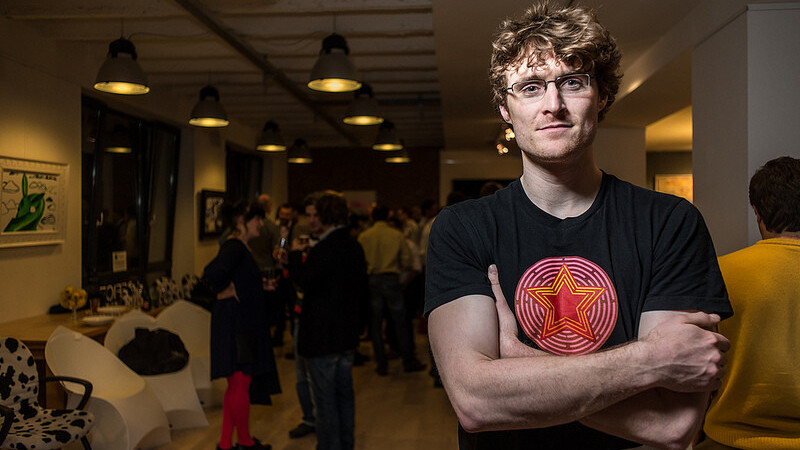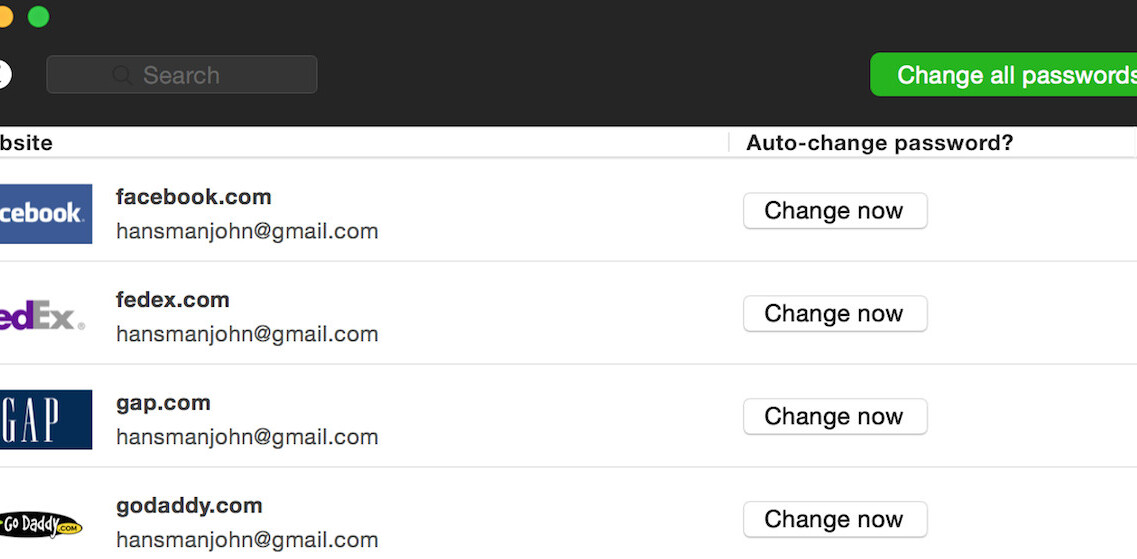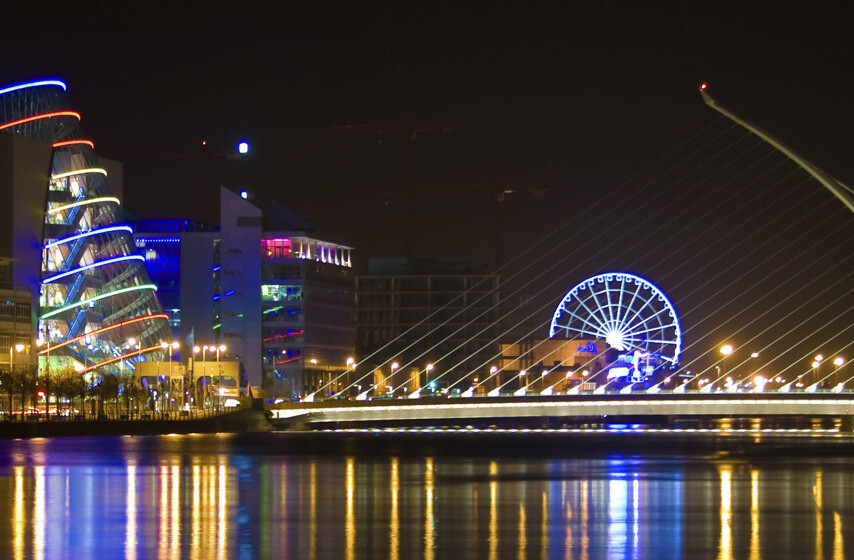
Paddy Cosgrave is no stranger to the tech conference scene. The driving force behind the Dublin Web Summit, he and his team are gearing up for another massive event this coming October. While the event itself is a year long preparation, Paddy has recently been spotted making appearances at much smaller, back-to-the-roots events, namely by way of the Pub Summit series.
The Pub Summit 100 event series is taking place in 40 countries across 5 continents over the course of 2013, all with a single focus – bring people together and provide them with the opportunity to socialize and grow their networks.
Vienna, Austria recently played host to a Pub Summit, and I had the opportunity to sit down with Paddy to discuss the roots of these events, what makes them special, why large conferences are still very important, and what and how conference and attendees can do to make the very most out of them.
Missed opportunities
“There are lots of different formats for meet-ups, and a lot of them are centered around content. But I feel that if you really want great content, you can just go on YouTube, and no matter who you’re looking to learn from, you can find a talk that they’ve done. Being lectured by a single person in a room of 100 people is a missed opportunity for those 100 people to mingle and meet each other. And the one thing we don’t do less and less of is spending time socializing with like minded people.”
The rules of the Pub Summit series are simple: No pitching, a few words from the co-hosts, and no guest speakers.
“It’s booze, and good people. The Irish have been perfecting it for generations.”
Bigger Isn’t Necessarily Better
When asked if these smaller type events should be the way of the future, eschewing massive conferences, Paddy comments, “Big isn’t necessarily better. A 5, 6, 7 thousand person Web Summit with 300 speakers, spread over three days, isn’t automatically a great experience. You’ve got to look at these people and recognize, what are the communities within that group. Bringing all of these people together is actually a great opportunity to create smaller spaces and sideline events. You’ve got iPhone designers, well why can’t they all go together for a breakfast? Why can’t there be dinners across the city hosted by curators of different communities? During the day, it’s a great opportunity to be inspired by great speakers in a huge auditorium. But on the periphery, you’ve got to create an ecosystem where you can go and meet individuals.”

In 2012, The Web Summit took over 7 pubs across Dublin and packed them with attendees, each hosted by, and targeted towards unique communities. The Web Summit by Night events provided the perfect setting for Paddy’s aforementioned networking hotbed. This coming October, The Dublin Web Summit is planning on furthering these events, and adds that the Pub Summit series not only provides a great experience to attendees, but is also a testing ground for the upcoming event(s) in Dublin.
“In the evening, the moment you walk out of the Web Summit venue, you should have a menu that you can choose from. You can pick the community you want to hang out with. I don’t think there’s any point to filling a nightclub with 2,000 people. That’s fun, but you can also have a lot of fun by creating a room of 50 people from very specific communities.”
Getting the Most out of Events
As one who’s seen his fair share of events, attendees, and winners and losers, I asked Paddy to share his thoughts on the “secret sauce” behind getting the very best out of events, both big and small.
“I think about SmartThings, that won the Spark of Genius contest in Dublin. The guy leading it, Alex Hawkinson, a serial entrepreneur, was just amazing. He brought a team of four guys. Why did he bring four guys? Because he wanted somebody to be at the stand at all times. You’re not going to be able to do that if there’s only two guys there, because somebody’s going to have a meeting at the same time as somebody who will want to go to the developer stage.”
“Alex brought the team to the venue the day before to get an understanding amongst the group as to how they would maximize their time on the ground, at the venue. They looked at the attendee list in the immediate days before and identified everybody that they wanted to meet.”
“For every hour that Alex spent in Dublin, he’d spent at least two hours preparing.”
Paddy deems this preparation method to be absolutely essential to any startups that are looking to maximize their time at events. There’s no such thing as expecting to simply show up at an event, and think that things will just happen.
“You should use the days before the event to maximize your time. Set up some meetings in advance, figure out what talks you really do want to see, figure out what parties are the parties that you should go to, which dinners you want to attend. Find out who’s organizing them, approach them, and ask for introductions. Alex had back to back to back meetings, and any blanks that he had, the team organized meetings for him on the spot.”
“Conferences compress business.”
Paddy’s underlying message for entrepreneurs, investors, and attendees, is nothing more than preparation. He notes that the amount of preparation involved in attending an event, large or small is massive, and not be overlooked.
“If you want to just come and listen to the talks, fine, but I do not think that the real value of the conferences is in the talk. The most value is in the people at the event. The great speakers ensure that there will be awesome people at the event, but the experienced investors, the experienced entrepreneurs; they’re not at the talks. They’re out at the barista area or sitting on sofas somewhere doing back-to-back meetings.”
A key point for startups to consider well before attending an event is what do they want to get out of it? Do they want to meet investors? Do they want to announce something? Do you want to contact the media? These are all different challenges with different strategies to be applied. It’s exactly this preparation which will keep you and your team focused and on track.
“You’re going to meet a lot of people at these events, so it’s key to pre-schedule any meetings that you can, as early at the event as possible. Because then, any people that you’ll meet, you’ll want to schedule them in for a meeting, and make sure that you’ll have time to talk to as many key people as possible.”
Talking to the Investor
With so much focus on individual meetings and connections, every entrepreneur needs to have a gameplan. Not only in whom they want to talk to, but more importantly, what they want to say, and how they want to say it.

“The guys from Atomico, for example, they look at the mini-decks for every single startup coming to the Web Summit. That’s hundreds and hundreds of decks. They figure out who they want to meet. They then set up those meetings well before they arrive to Dublin.”
“The single biggest mistake that startups make at events is that they forget that investors are getting pitched literally left, right, and center. There’s no way that these investors can leave the event with the concept for your company in their heads. So it’s much more important to build a rapport with an investor that you can then follow up with him a number of times.”
“No investor is going to invest in your company on the spot. He doesn’t need to know everything about your company. What he needs to know is that you’re an interesting guy, and you’ve possibly got an interesting idea. It’s important not to corner an investor. Touch them very, very briefly, just say, “Hi, I’m Tim, I’m doing this,” talk about a minute, and then just leave it at that. If he wants to talk more, then obviously talk more, but don’t push the investor away and try to play some type of cat-and-mouse game, they’re all too smart, they see through that.”
“The most important thing is that they remember who you are, they have your contact details, you have their contact details, and if you follow up with an email, they’ll open that email.”
“Investors just get very off put when someone wants to corner them and explain their entire business over 10 minutes. Do not explain your entire product unless the investor says, let’s sit down, I want to hear exactly what you guys are building.”
While discussing the large scale Web Summit in Dublin, Paddy also noted that the same holds true for the Pub Summits. These are simply a concentration of what he deems the best parts of large events. Do the same homework. Know who’s attending. Send an email over and let these investors know that you’ll be at the Pub Summit, and that you’d like a few minutes of their time. Nothing more.
The Pub Summit series continues throughout 2013, with more dates and locations continually being added. The Dublin Web Summit is current accepting applications for a 2-for-1 voucher, and Paddy adds that speakers will begin being announced over the coming weeks.
“We’re going to have lots of music, lots of beer, and we’ve definitely got our most incredible lineup of speakers that we’ve ever had!”
Image: Heisenberg Media
Get the TNW newsletter
Get the most important tech news in your inbox each week.





